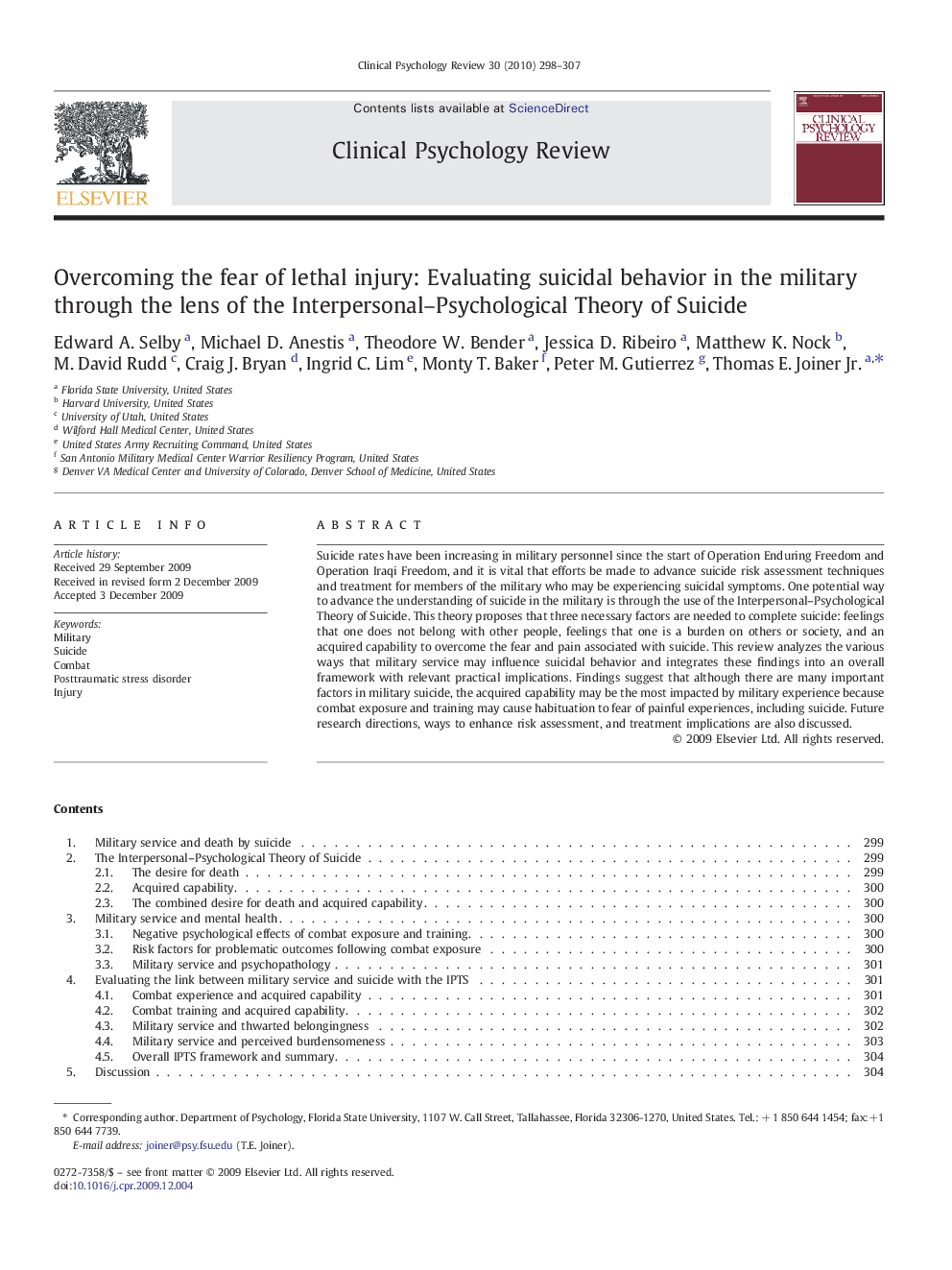| Article ID | Journal | Published Year | Pages | File Type |
|---|---|---|---|---|
| 903866 | Clinical Psychology Review | 2010 | 10 Pages |
Suicide rates have been increasing in military personnel since the start of Operation Enduring Freedom and Operation Iraqi Freedom, and it is vital that efforts be made to advance suicide risk assessment techniques and treatment for members of the military who may be experiencing suicidal symptoms. One potential way to advance the understanding of suicide in the military is through the use of the Interpersonal–Psychological Theory of Suicide. This theory proposes that three necessary factors are needed to complete suicide: feelings that one does not belong with other people, feelings that one is a burden on others or society, and an acquired capability to overcome the fear and pain associated with suicide. This review analyzes the various ways that military service may influence suicidal behavior and integrates these findings into an overall framework with relevant practical implications. Findings suggest that although there are many important factors in military suicide, the acquired capability may be the most impacted by military experience because combat exposure and training may cause habituation to fear of painful experiences, including suicide. Future research directions, ways to enhance risk assessment, and treatment implications are also discussed.
